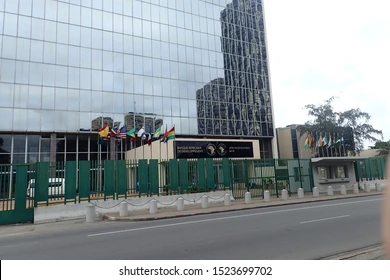The effect of recent fuel scarcity in Nigeria is hitting harder on citizens of the West African country as its airline operators on Monday said they have only three more days to fly due to the high cost of aviation fuel.
The scarcity began in the first week of February 2022 when the Nigerian government says it found an unsafe quantity of methanol in Premium Motor Spirit (PMS) imported into the country, and cited that as the reason for fuel shortage that has led to hard times for many Nigerians.
One of the airline operators, Mr Allen Onyema, the CEO of Air Peace, who spoke on behalf of the operators, said at a public hearing of ad hoc committee of the lower chamber of Nigeria’s legislature, the House of Representatives. The committee is investigating the scarcity of aviation fuel in Abuja, Nigeria’s capital.
Slamreportafrica.com reported last week the price of diesel has hit a record high at ₦625 per litre in filling stations after it jumped from ₦ 430 to ₦545 two days earlier. The product was sold for as low as ₦ 420 two weeks ago.
Diesel currently sells for ₦720 at the deports, the price is as high as ₦800 at some filling station in the country.
Onyema accused aviation fuel marketers of not speaking the truth about the actual landing cost of aviation fuel, adding that if drastic measures were not taken, the least air ticket would go for as high as N120,000.
He urged the House of Reps to give operators of airlines the license to import aviation fuel, saying this would reduce the unnecessary burden on the citizenry.
“What we are asking from the government is to give us the right to import aviation fuel. What others use in insuring one plane is what we use in insuring three planes in Nigeria, so the Nigeria airline is dead on arrival,” he said.
The Group Managing Director of the Nigeria National Petroleum Corporation (NNPC) Ltd, Mr Mele Kyari, said that it would consider granting licenses to operators of airlines to import aviation fuel.
Kyari also agreed that aviation fuel would now be sold at N500 per litre contrary to the current N670 per litre.
Meanwhile, Mr Ugbugo Ukoha, the Executive Director for Distribution System for Storage and Retailing Infrastructure in the Nigeria Midstream and Downstream Regulatory Authority, said that Nigeria had an excess supply of Aviation Turbine Kerosene (ATK).
He said the country had sufficient products that could go round, adding that the scarcity and the high cost remained the marketers’ challenge.
Committee reactions…
Hon. Ahmed Wase, the Deputy Speaker of the House of Reps, said that the committee was only after the fact, as it was poised to protect the interest of Nigerians.
“We are not willing to compromise what is in the interest of our country,” he said.
He, however, chided the marketers for speaking the language they did not understand in order to cover up some facts.
According to him, the marketers’ analyses are not correct based on the fact at the committee’s disposal.
He also queried why some government agencies would not be telling the truth about the scarcity and the high cost of aviation fuel, saying “we should be seen to protect the interest of Nigeria and not otherwise”.
He said that the committee would ensure that the right thing was done in the interest of the country, adding that the basic tenet of governance remained the welfare of the people.
Hon. Toby Okechukwu, the Minority leader of the House, however, raised questions on what determined the marketers prices and why they were hoarding the product.
Okechukwu said that such actions by marketers were bringing a lot of dysfunction to the country’s economy.
“If we are saying that the landing cost of aviation fuel is N450 from the Central Bank of Nigeria who approved it,” he said.
He also accused the Nigeria National Petroleum Corporation (NNPC) Ltd. of not knowing those managing the products.




























